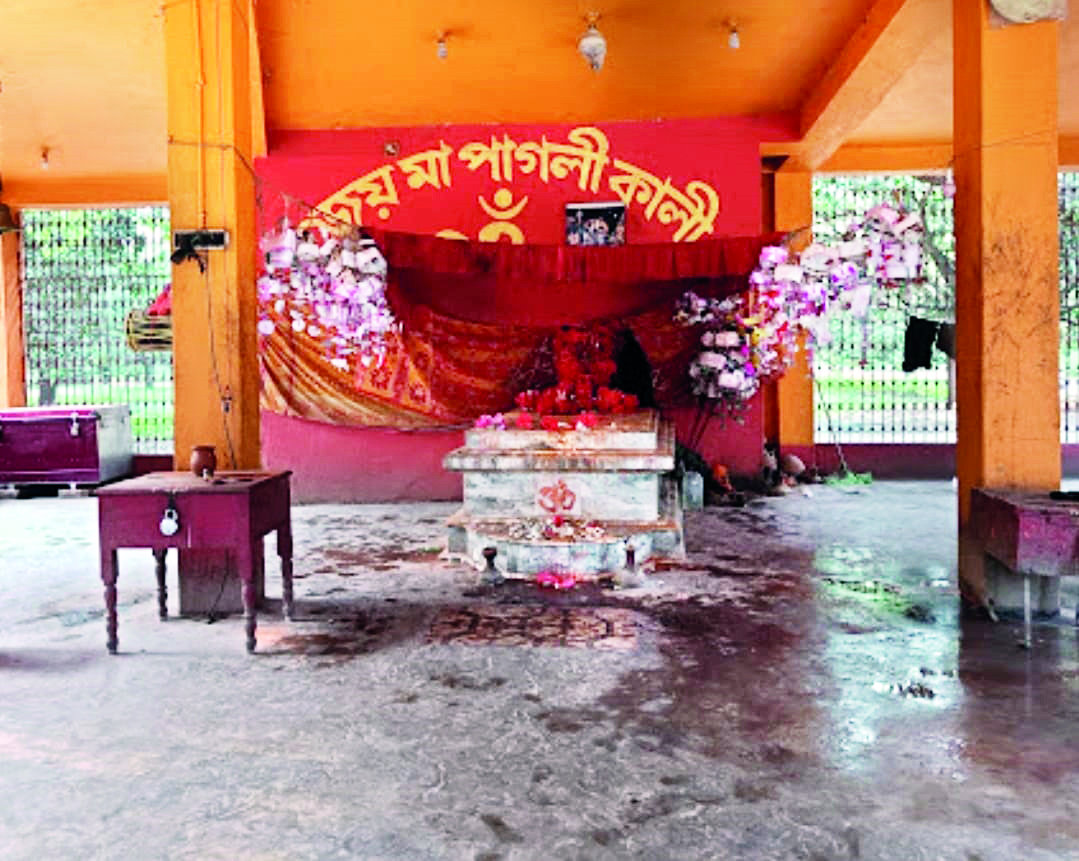Pagli Kali worshipped in Malda sans idol for over 300 years

Malda: The Pagli Kali Puja, a unique and centuries-old celebration, takes place on the banks of the Pagla River in Khaskol village in English Bazar with no idols and the worship is conducted on the next day of the traditional Kali Puja on new moon. It also highlights the rich tapestry of communal harmony in the region. This annual event has been observed for over 300 years.
The origins of the festival trace back to a Muslim landlord named Imam, who, recognising the cultural significance of the goddess, funded the construction of a temple with a stipulation: no idols would be worshipped, in respect to Islamic beliefs. The temple was established on a one-and-a-half bigha plot, funded by Imam, with some of the land dedicated to mango orchards to support the temple’s upkeep.
According to local lore, the Puja began when Kalu Ghosh of Khaskol and Amar Mishra’s ancestor from Bangitola both dreamt of Goddess Kali on the same night. The following day, they discovered a ghot (pot) floating in the river and they found an idol inside it. In the cowshed of the Ghosh family, the deity was worshipped for the next 30 days and finally they petitioned Imam for the temple’s creation. Imam allowed the worship on certain conditions and allocated funds and land on the bank of the river at the border of English Bazar and Kaliachak II blocks. Distinct from other Kali pujas, the rituals here are performed during the day, featuring animal sacrifices conducted in the river. Local participants hold the animals while one person performs the sacrifice, a practice that underscores the community’s unique traditions.
Following the Puja, a fair brings together residents from both communities, fostering joy and togetherness. The distribution of bhog, or offerings, among attendees further strengthens the bond shared between the villagers, illustrating a powerful example of coexistence and mutual respect.
Sudarshan Pandey, one of the organisers of the Puja, said: “Every year the Puja witnesses animal sacrifices and as a custom, hundreds of pigeons are set free. Devotees even from Nepal pay visit to Goddess along with others from different districts and states.”



